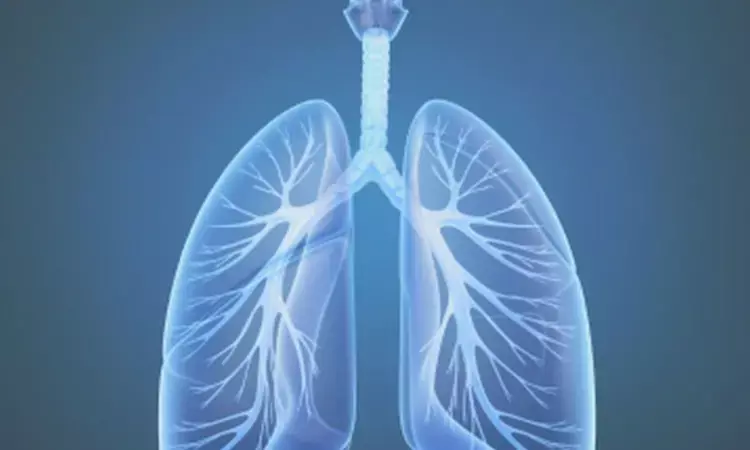- Home
- Medical news & Guidelines
- Anesthesiology
- Cardiology and CTVS
- Critical Care
- Dentistry
- Dermatology
- Diabetes and Endocrinology
- ENT
- Gastroenterology
- Medicine
- Nephrology
- Neurology
- Obstretics-Gynaecology
- Oncology
- Ophthalmology
- Orthopaedics
- Pediatrics-Neonatology
- Psychiatry
- Pulmonology
- Radiology
- Surgery
- Urology
- Laboratory Medicine
- Diet
- Nursing
- Paramedical
- Physiotherapy
- Health news
- Fact Check
- Bone Health Fact Check
- Brain Health Fact Check
- Cancer Related Fact Check
- Child Care Fact Check
- Dental and oral health fact check
- Diabetes and metabolic health fact check
- Diet and Nutrition Fact Check
- Eye and ENT Care Fact Check
- Fitness fact check
- Gut health fact check
- Heart health fact check
- Kidney health fact check
- Medical education fact check
- Men's health fact check
- Respiratory fact check
- Skin and hair care fact check
- Vaccine and Immunization fact check
- Women's health fact check
- AYUSH
- State News
- Andaman and Nicobar Islands
- Andhra Pradesh
- Arunachal Pradesh
- Assam
- Bihar
- Chandigarh
- Chattisgarh
- Dadra and Nagar Haveli
- Daman and Diu
- Delhi
- Goa
- Gujarat
- Haryana
- Himachal Pradesh
- Jammu & Kashmir
- Jharkhand
- Karnataka
- Kerala
- Ladakh
- Lakshadweep
- Madhya Pradesh
- Maharashtra
- Manipur
- Meghalaya
- Mizoram
- Nagaland
- Odisha
- Puducherry
- Punjab
- Rajasthan
- Sikkim
- Tamil Nadu
- Telangana
- Tripura
- Uttar Pradesh
- Uttrakhand
- West Bengal
- Medical Education
- Industry
No clear benefit of anaerobic coverage for treating aspiration pneumonia

UK: Anaerobic coverage in the antibiotic treatment of aspiration pneumonia may not be needed if there is no abscess or empyema formation and the patient has good oral hygiene, findings from a recent meta-analysis have shown. The results appeared in the Journal of Clinical Medicine on 2 March 2023.
"In the current review, the data is not adequate to assess the necessity of covering anaerobic bacteria with antibiotics as an initial treatment of aspiration pneumonia," the investigators wrote. "Further research is required to determine which cases need antibiotic coverage if any."
Aspiration pneumonia has become a leading cause of death and hospitalization in adults. It carries a significant socioeconomic burden worldwide, contributing to up to 90% of pneumonia in the elderly. Aspiration pneumonia is a subtype of hospital-acquired and community-acquired pneumonia with a poor diagnosis. Therefore, it is essential to investigate the current optimal management of aspiration pneumonia.
Anaerobic bacteria have been suggested to play a critical role in the pathogenesis of aspiration pneumonia. Due to these findings, it has become a common practice to consider routine anaerobic coverage in individuals suspected of having aspiration pneumonia. However, recent studies have suggested that anaerobic coverage may not necessarily improve clinical outcomes or be harmful.
Considering that clinical data should be based on current data implying the shift in causative bacteria, Yuki Yoshimatsu, Lewisham and Greenwich NHS Trust, London, UK, and colleagues investigated whether anaerobic coverage is recommended in the treatment of aspiration pneumonia.
For this purpose, the researchers conducted a meta-analysis and systematic review comparing studies with and without anaerobic coverage for treating aspiration pneumonia. Only one randomized trial and two observational studies were eligible for the review.
The study's primary outcome was mortality. Additional outcomes included the development of resistant bacteria, resolution of pneumonia, recurrence, length of stay, and adverse effects.
The researchers reported the following findings:
- From an initial 2523 publications, one randomized control trial and two observational studies were selected.
- The studies did not show a clear benefit of anaerobic coverage.
- Upon meta-analysis, anaerobic coverage did not improve mortality (Odds ratio 1.23).
- Studies reporting the resolution of pneumonia, length of hospital stay, recurrence of pneumonia, and adverse effects showed no benefit of anaerobic coverage.
- The development of resistant bacteria should have been discussed in these studies.
"Although very limited in number, the publications showed no clear evidence to recommend anaerobic coverage in the treatment of patients diagnosed with aspiration pneumonia," the researchers wrote. "No included studies reported the benefit of anaerobic coverage in improving mortality."
"Data is insufficient to assess the necessity of anaerobic coverage," they concluded.
Reference:
Yoshimatsu, Y.; Aga, M.; Komiya, K.; Haranaga, S.; Numata, Y.; Miki, M.; Higa, F.; Senda, K.; Teramoto, S. The Clinical Significance of Anaerobic Coverage in the Antibiotic Treatment of Aspiration Pneumonia: A Systematic Review and Meta-Analysis. J. Clin. Med. 2023, 12, 1992. https://doi.org/10.3390/jcm12051992
Dr Kamal Kant Kohli-MBBS, DTCD- a chest specialist with more than 30 years of practice and a flair for writing clinical articles, Dr Kamal Kant Kohli joined Medical Dialogues as a Chief Editor of Medical News. Besides writing articles, as an editor, he proofreads and verifies all the medical content published on Medical Dialogues including those coming from journals, studies,medical conferences,guidelines etc. Email: drkohli@medicaldialogues.in. Contact no. 011-43720751


